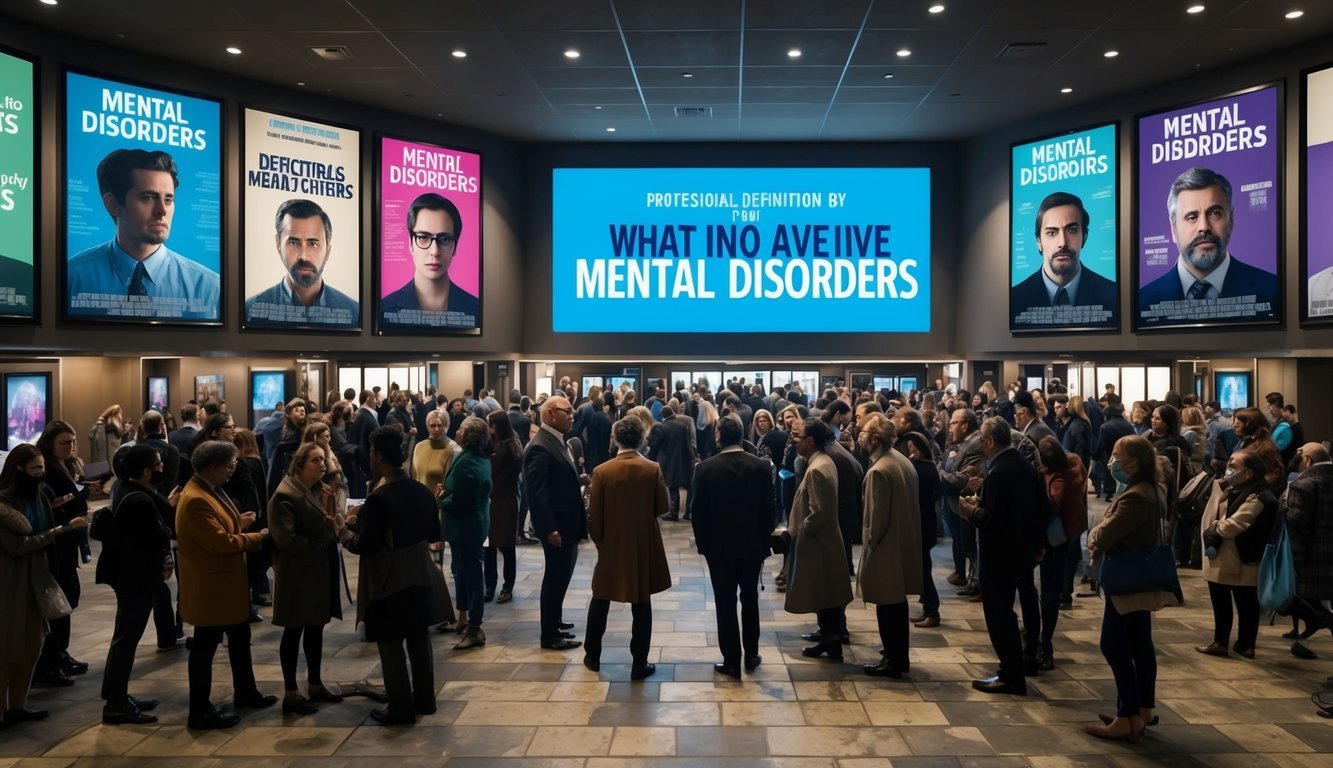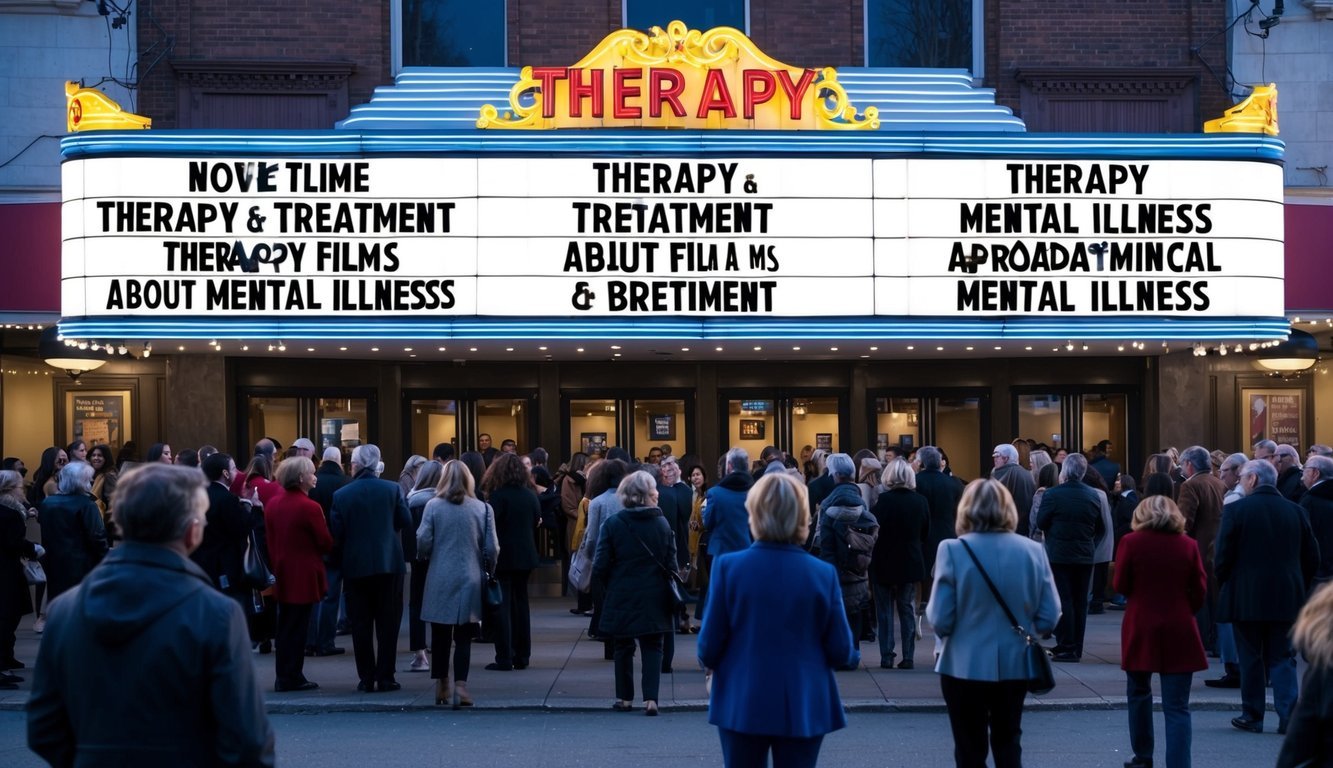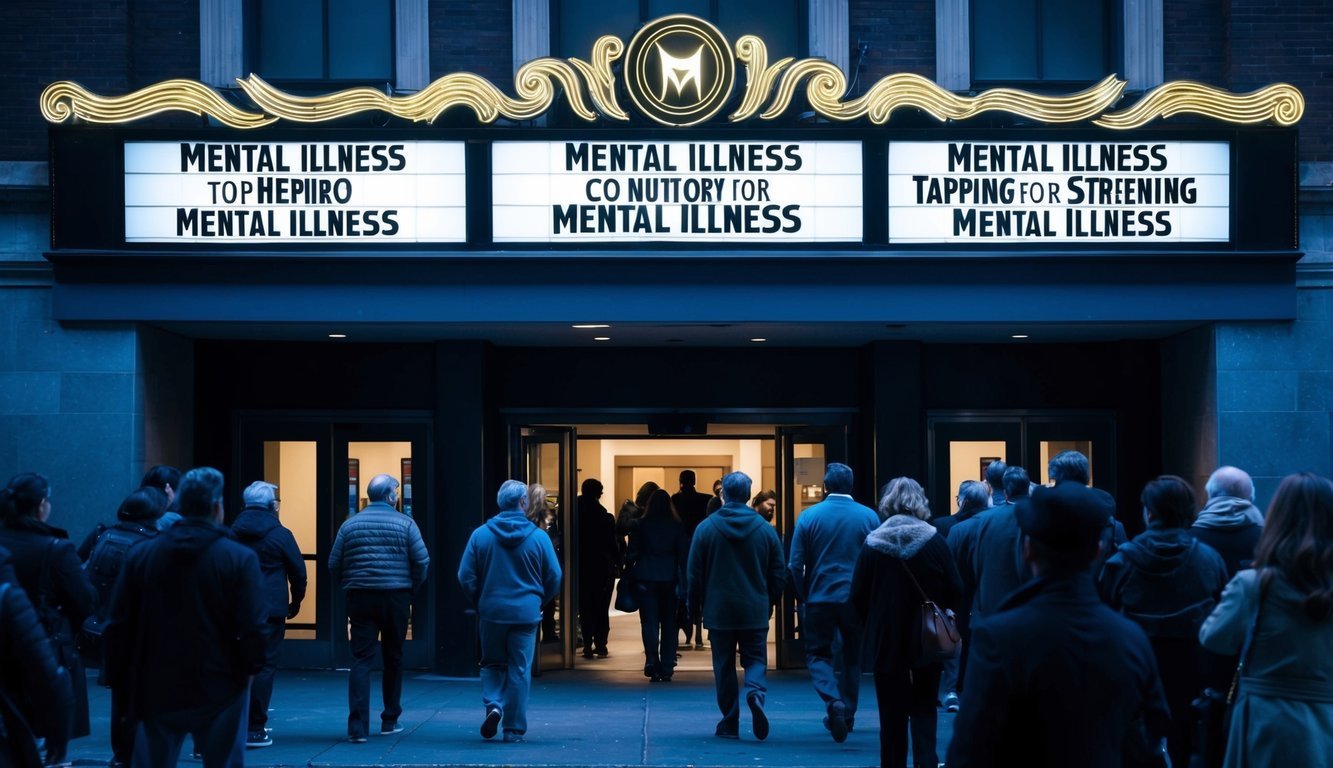PsychNewsDaily Publishers
100 Summit Drive
Burlington, MA, 01803
Telephone: (320) 349-2484
PsychNewsDaily Publishers
100 Summit Drive
Burlington, MA, 01803
Telephone: (320) 349-2484
Cinema often portrays mental illness, influencing public perception and awareness. Films can evoke empathy, though inaccuracies may perpetuate stigma. Realistic depictions support understanding and reduce misunderstandings.

I find it fascinating how movies tackle mental illness. They can shine a light on psychological disorders and help us understand what people go through. Yet, they sometimes don’t get it quite right, which can feed into stigma.
When we think about Hollywood, a lot of our ideas about mental health come from films. It’s like we’re seeing snippets of real life, but they’re often dramatized. I wonder if most folks realize how much movies shape their views on mental illness.
Films often create a connection. They can raise mental health awareness, letting us see characters that struggle. This sometimes encourages empathy. I can remember scenes that stuck with me, showing characters fighting their own battles.
However, not all portrayals are accurate. Some films exaggerate or misrepresent mental health conditions. This can lead to misunderstandings. It makes me think that if films focused more on realism, we could help reduce stigma even more.
So, I’d say it’s essential for filmmakers to handle mental illness with care. There’s real power in these stories. When done right, they can inspire conversations and bring awareness to what many go through daily.

Movies often try to show mental illness in ways that resonate deeply with us. They can make us think, feel, and sometimes even shift our views. I find it fascinating how films represent different disorders, bringing stories like depression and schizophrenia into our lives.
Depression is a heavy topic, and films like A Beautiful Mind and Girl, Interrupted tackle it head-on. They show how this illness can wrap around a person like a thick fog. I’ve seen how characters wrestle with feelings of emptiness and hopelessness. Sometimes, it just hits me hard when a character can’t find joy in things they once loved.
Melancholia is often tied to a sense of loss and longing, which feels so real. It makes me wonder if filmmakers dig into their own experiences when creating these stories. In movies, we see characters spiraling, and it can be both heartbreaking and eye-opening. These portrayals help us to understand the struggle of real people dealing with depression.
Schizophrenia and bipolar disorder are often depicted with lots of drama. Movies can really paint a vivid picture of these complexities. I think of films like A Beautiful Mind, which dives into the life of John Nash. His battles show the ups and downs of reality and imagination. It’s mind-bending to witness how this disorder distorts one’s perception of the world.
Bipolar disorder, on the other hand, reveals itself through intense mood swings. We see characters going from euphoria to depths of despair. Honestly, it makes me think about how these extremes can affect relationships and personal lives. It’s not just about the highs and lows; it’s the impact on everyday life that’s often missed.
Childhood trauma and identity struggles are explored in films like The Perks of Being a Wallflower. It’s moving to see how trauma shapes a character’s path into adulthood. I feel a deep connection when a character grapples with who they are, questioning their place in the world.
These movies often show how past experiences can haunt us. It makes me reflect on how people navigate their identities in the shadow of trauma. Watching these plays out on screen can be tough, but it also opens our hearts and minds to the real struggles many face.

Movies often explore therapy and mental health treatment in a way that really connects with audiences. They shine a light on personal struggles, emphasizing the healing power of relationships and understanding. Let’s dive into how these narratives play out on screen.
In films like Good Will Hunting, we see characters embarking on real therapeutic journeys. Will, played by Matt Damon, struggles with deep emotional wounds. His sessions with Dr. Sean Maguire, portrayed by Robin Williams, aren’t just about diagnosis or treatment. They’re about connection, trust, and raw emotion.
This kind of narrative shows how therapy can be a safe space for vulnerability. I think it’s powerful when characters face their fears and learn to communicate their feelings. It’s like the audience gets a glimpse into someone else’s process of healing, making us reflect on our own lives.
The role of psychiatrists in movies can be quite revealing. Many portrayals lean toward stereotypical images. Yet, films like A Beautiful Mind give a more nuanced view. John Nash, played by Russell Crowe, shows us the complexity of living with mental illness while also highlighting the importance of ongoing treatment.
Honestly, I often wonder if these portrayals do justice to real-life psychiatrists. The good ones aren’t just about filling out forms or writing prescriptions. They listen and guide, much like Dr. Maguire does with Will. This kind of depiction emphasizes the therapeutic alliance, reminding us that recovery is a journey—not just a quick fix. It’s fascinating how such stories can shape our understanding of mental health.

Mental health plays a big role in how we connect with others. It can change family bonds and the way we handle friendships and love. Both positive and negative experiences touch our lives deeply, and understanding these effects can help us support each other better.
When someone in a family struggles with mental illness, it can be tough on everyone. There can be fear, confusion, and even anger. I wonder how often families feel lost in trying to understand what their loved ones are going through. For instance, family members might not know how to help or what to say, leading to distance.
Trauma often creates barriers. It might cause misunderstandings, which can strain relationships. On the flip side, kindness and acceptance can help mend these bonds. Families who openly communicate can create a safe space for healing. Families that understand mental health issues can be a strong support system, promoting resilience and hope.
Friendships can flourish or struggle based on mental health. I think about how difficult it must be to connect with peers when you’re dealing with anxiety or depression. Friends might not always know the right words or actions to support someone. This lack of understanding can lead to isolation.
When love enters the mix, things can get even more complex. Partners often face challenges like addiction or trauma. It’s so important to have open conversations and be there for each other. Acceptance plays a key role; it can be healing. I’ve seen friendships strengthen when both sides are honest and patient.

Movies about mental illness often reflect real issues in our society. They explore topics like anxiety, suicide, and drug abuse. I often wonder how these films can open conversations that many might shy away from.
Take Silver Linings Playbook, for instance. It shows characters facing their mental health challenges head-on. Their struggles with relationships and daily life resonate with many of us. I mean, who hasn’t felt a little isolated sometimes?
Then there’s Inside Out, which dives into emotional complexities in a fun way. It offers a way for kids (and adults!) to understand their feelings. I think it’s great how art can help us process stuff we don’t fully grasp.
Dear Zindagi also captures how important it is to communicate about mental health. It challenges the stigma around therapy. Honestly, I think it’s refreshing to see this in films.
On a different note, The King of Staten Island touches on themes of grief and growing up. It’s like a mirror reflecting the messiness of life, right?
Movies like Beautiful Boy and Aftersun highlight personal struggles and family dynamics. They show that healing isn’t always linear. I can’t help but feel that these stories encourage us to talk about our own experiences, to seek help, and to be kinder to ourselves and others.

There are a lot of great movies that deal with mental illness, especially on Netflix. Whether you’re looking for deep dives into heavy topics or something a bit lighter, there’s something for everyone. Let’s tackle some of those burning questions.
I’ve come across several films on Netflix that really explore mental illness in detail. “The Virgin Suicides” is haunting and dives into the lives of five sisters dealing with their overwhelming emotions. Also, “To the Bone,” with Lily Collins, touches on the struggles of eating disorders, showing a raw and real side of that battle.
Absolutely! If you’re after something emotional, “A Star is Born” stands out for its portrayal of addiction and the toll it takes on relationships. Another one is “Silver Linings Playbook.” It’s a heartfelt story about love and recovery, plus it gives a good look at those living with bipolar disorder.
For high schoolers, “The Perks of Being a Wallflower” is a must-watch. It beautifully captures the feelings of anxiety and depression among teens. Then there’s “13 Reasons Why” (the show), it was controversial but raised a lot of important conversations about mental health and bullying.
Some top-tier movies I can’t ignore include “Good Will Hunting.” It’s classic and looks at therapy’s role in healing. Then there’s “One Flew Over the Cuckoo’s Nest,” which dives into life inside a mental hospital. Both films are thought-provoking and showcase incredible performances.
There are plenty out there! “Black Swan” is a vivid portrayal of a dancer’s descent into madness. “Girl, Interrupted” offers a powerful look at life in a mental health facility and shows the complexities of different disorders. Both keep you thinking long after they’re over.
The documentary “Heal” is a fascinating one that explores the connection between mind and body. Then there’s “The Mask You Live In,” which talks about how traditional ideas of masculinity can affect mental health.
They both offer deep insights that leave you pondering long after. I hope you find these films inspiring or eye-opening! They really do bring mental health issues to the forefront in a way that’s relatable and heartfelt.